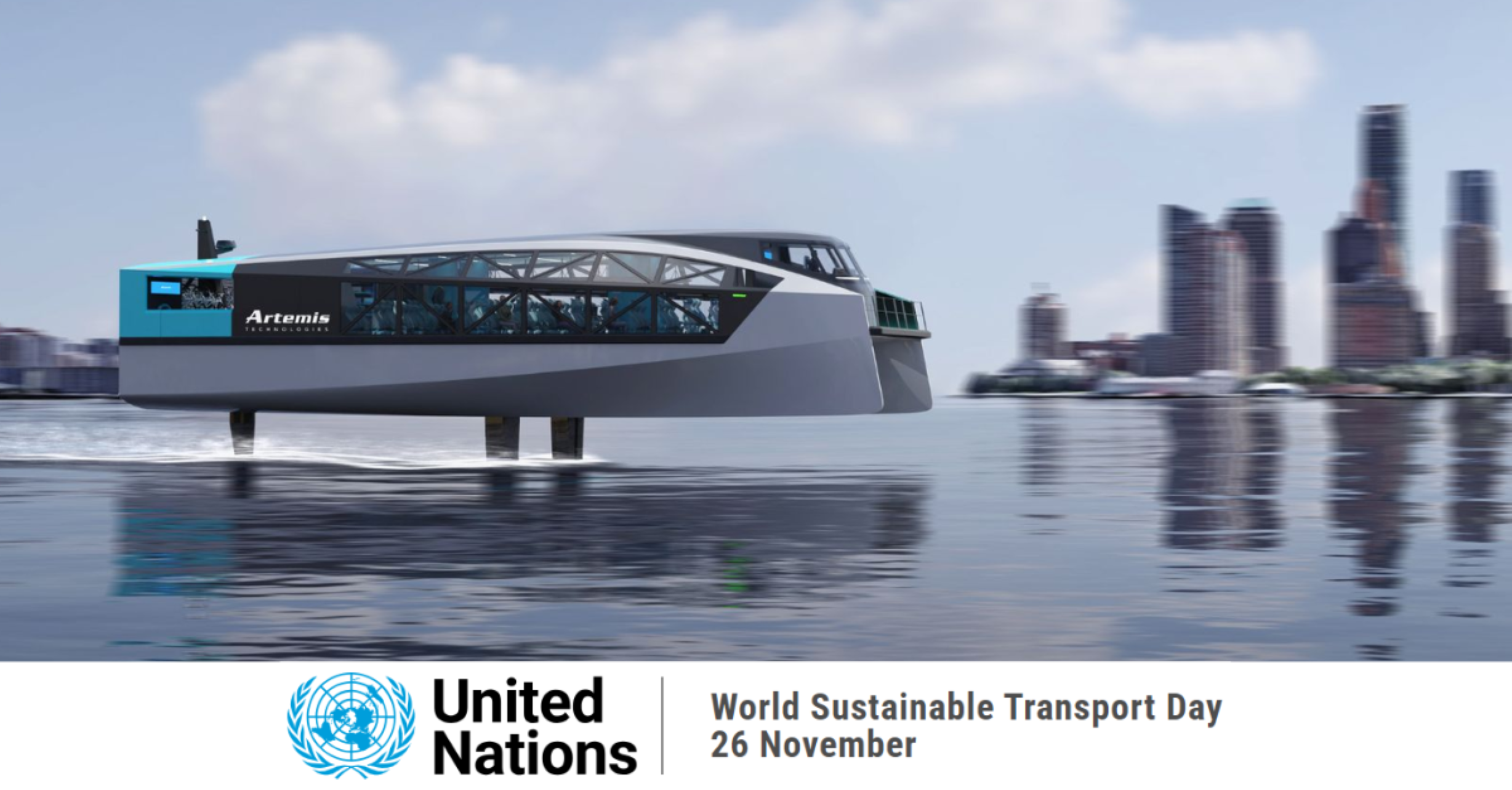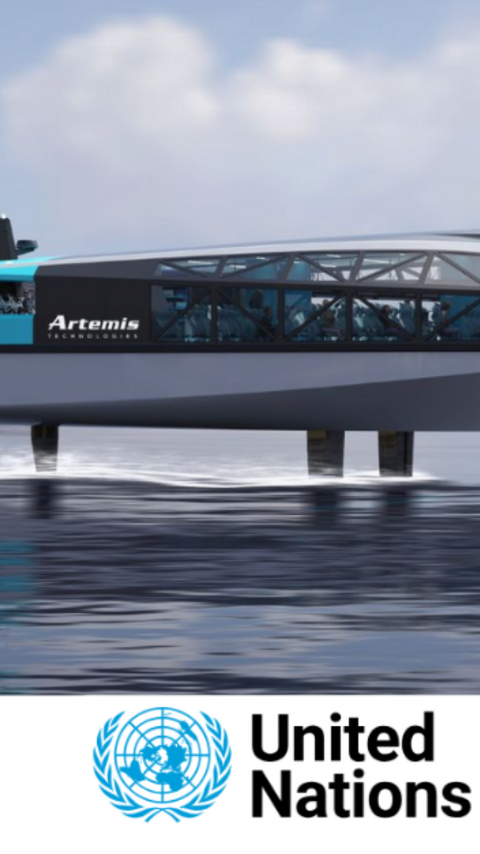



On what marks the United Nation’s World Sustainable Transport Day, Dr Iain Percy OBE, CEO of Artemis Technologies, discusses the climate challenge and what we can all do to address the situation.
In a world that is more interconnected than ever, our dependence on transportation is undeniable. However, our traditional approach to transport, primarily powered by fossil fuels and reliant on existing infrastructure, is taking a heavy toll on our planet. As we come together to observe the United Nations World Sustainable Transport Day, it’s essential to understand the imperative of embracing sustainable public transport and the urgency of transitioning away from its non-sustainable counterparts.
The environmental impact of non-sustainable transport systems is a growing concern that cannot be ignored. To appreciate the gravity of the situation, consider these alarming statistics:
Zero Emissions: The Artemis EF-24 Passenger is 100% electric, powered by the revolutionary Artemis eFoiler® system. This patented technology creates zero emissions at the point of use, a stark departure from highly-polluting, conventional fossil fuel-powered transportation. By choosing electric over gasoline-powered vessels, we take a significant step towards cleaner air and a healthier planet. Minimal Environmental Impact: The Artemis EF-24 Passenger flies above the water, leaving behind minimal wake. Not only does this provide passengers with a smooth journey and environmentally conscious experience, but it also ensures optimal protection for the marine environment and shorelines. It demonstrates how transportation can coexist with environmental protection.
Alleviating Congestion and Reducing Emissions: The Artemis EF-24 Passenger is a multifaceted solution. Not only does it offer an efficient and low-emission mode of transportation, but it also helps alleviate traffic congestion. This balance between the need for people to move and the necessity to reduce harmful emissions is a model to emulate in our journey towards sustainability. Cost-Effective and Environmentally Friendly Infrastructure: In water-based cities, the Artemis EF-24 Passenger represents a cost-effective alternative to traditional infrastructure projects like new roads or railway lines. Conventional infrastructure construction often also takes a negative toll on the environment. The Artemis EF-24 Passenger, on the other hand, illustrates the potential for a greener, more efficient and more sustainable approach.
As we mark UN World Sustainable Transport Day, it is essential to recognise the importance of sustainable public transport. The Artemis EF-24 Passenger serves as an example of sustainable innovation and encourages us to reimagine our transportation systems and their relationship with the environment. By embracing solutions like the Artemis EF-24 Passenger, we can collectively navigate towards a more sustainable, interconnected world that not only meets transportation needs but also safeguards the planet for future generations.